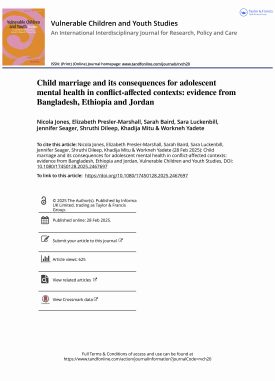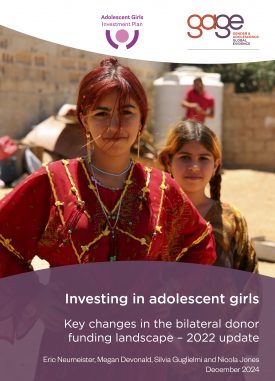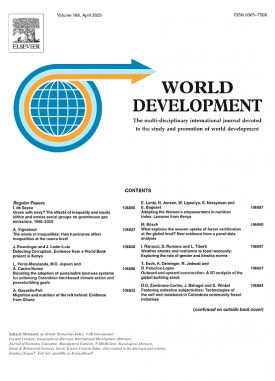This brief summarises the findings of GAGE’s formative qualitative work in Rwanda—which took place in 2016 in three contrasting communities. They were: urban (Musanze), peri-urban (Rwamagana), and rural (Nyaruguru). Based on individual and group interviews with just over 500 people, 300 of whom were adolescents between the ages of 10 and 15, we found that despite significant recent progress, much of which is due to the governments’ commitment to adolescent wellbeing, girls’ capabilities continue to be truncated.
For example, while Rwanda now has some of the highest primary and secondary school enrolment levels in sub-Saharan Africa, and girls are now more likely than boys to start school on time and progress through on schedule, rampant school violence, from teachers and other students, is pushing many girls and boys out of the classroom before they complete their educations. In addition, despite the fact that education is ostensibly free, high ad-hoc fees prevent the poorest from attending. Girls face particular gendered risks as well. They not only have more chores than boys, which impacts their school attendance and performance, they are at risk of rape, face exploitative sexual relationships with ‘Sugar Daddies’, have limited access to decent work, and have especially few opportunities to exercise voice and agency.
Our research suggests an urgent need to develop locally tailored programming that operationalises government commitment to adolescents. In addition to increased economic support for the poorest—and better prosecution of sexual violence, this should include efforts to encourage non-violent pedagogies, better access to information for adolescents about puberty and healthy relationships, and programming aimed at shifting the gender norms of adolescent girls and boys, their parents, and their broader communities.
Suggested citation
Isimbi, R., Umutoni, M. F. and Coast, E. (2017) Exploring Rwandan adolescents’ gendered experiences and perspectives: key findings and implications. Report. London: Gender and Adolescence: Global Evidence. (https://www.gage.odi.org/publication/rwandan-adolescents-gendered-experiences-and-perspectives/)


